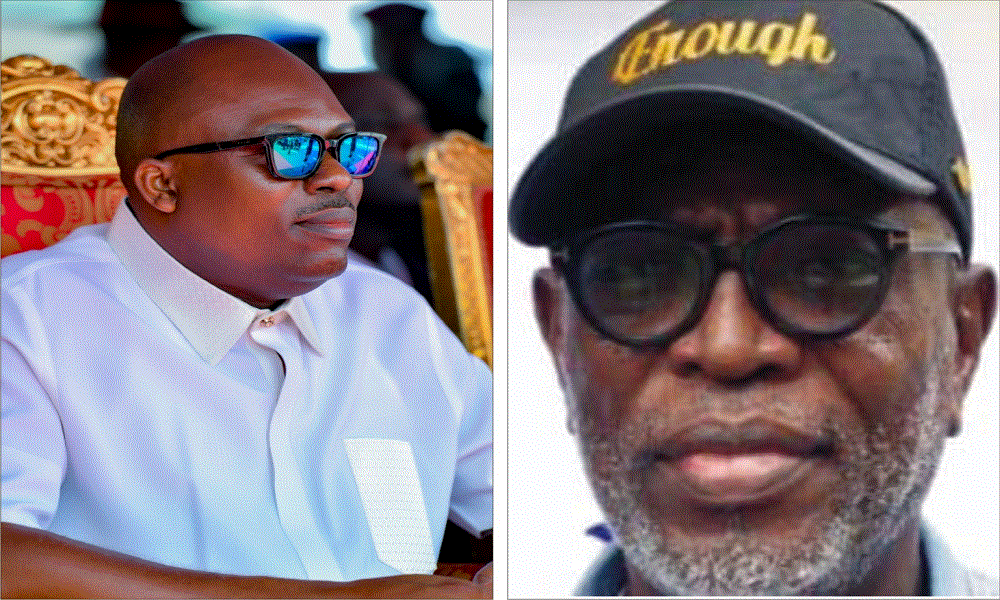Journalism Practice And Media Laws
Journalists and the media in Nigeria are undoubtedly witnessing relentless and increasing attacks on them, frequently orchestrated through the abuse or misuse of Laws and regulations by governments, law enforcement agencies, security and intelligence officials as well as rich and powerful non-state actors.
It has therefore become imperative that journalists and media organizations familiarize themselves with the laws and regulations affecting journalism and media practice to avoid unnecessary brushes with the law as well as to enable them to better protect themselves and their sources of information, while carrying out their duties safely and confidently.
Regrettably, laws enacted during military rule and some others which have their origins in the colonial era, have continued to be enforced under a democratic dispensation and used intermittently to harass, intimidate and repress journalists and the media.
Although few of them have been slightly modified, they remain largely restrictive towards the media sector and journalists.
Laws like the Official Secrets Act of 1962; the Nigeria Press Council Act of 1992, as amended; the National Broadcasting Commission Act of 1992, as amended; the Criminal Code Act; can be used and are sometimes used to harass, intimidate and repress journalists and the media.
This is because they are seen to create offenses such as criminal defamation, publication of false news; defamation of persons exercising sovereign authority over a State; provoking breach of peace by offensive publication; insult to a religion; obscene publications; seditious publications; among others.
According to the Executive Director of Media Rights Agenda (MRA)Journalists should study and familiarize themselves with the prevailing ethical standard, which is the Revised Code of Ethics for Nigerian Journalists, 2022, so that they can report more ethically and professionally; better protect themselves; assert their rights and freedoms, and ensure that they can carry out their professional duties without undue interference or the fear of retribution.
To address these challenges faced by professional journalists and media organizations in Nigeria, the Media Rights Agenda recently organized a workshop on Laws Affecting the Media and Safety of Journalists in Enugu State with the aim of equipping journalists with the current legal framework governing the media in Nigeria; offer practical guidance on ensuring compliance with media-related laws; as well as foster a collaborative environment for addressing the challenges faced by journalists.
The workshop which was supported by the MacArthur Foundation through the Wole Soyinka Centre for Investigative Journalism (WSCIJ) under the Collaborative Media Engagement for Development, Inclusion and Accountability (CMEDIA) Project, trained journalists from the print, broadcast and online media organizations on digital security the Freedom of Information Act, 2011.
The participants had through a communique they adopted frowned at the Cybercrimes (Prohibition, Prevention, etc.) Act of 2015, as amended, which was enacted by the Federal Government and has become a potent instrument for public office holders, politicians and other powerful members of the society who frequently misuse and abuse the Law to harass, intimidate and repress journalists and the media, thereby stifling media freedom.
They observed that Journalists in Nigeria are operating in an increasingly hostile digital environment, making them as well as their confidential sources of information and work tools vulnerable and susceptible to digital attacks.
“Therefore, understanding the nature of the digital threats while adopting and implementing effective security protections and practices are essential for the safe performance of their professional functions.
In this digital environment, journalists are therefore encouraged to adopt robust security measures to protect themselves, their sources of information and their devices and professional equipment from malicious actors as well as from governments, law enforcement agencies, security and intelligence agencies”, the communique read in part.
It further recommended that media organizations must equip journalists in their employment, particularly those who have been targeted for their work as well as those who are facing threats or who are likely to be targeted as a result of the sensitive nature of their work, with appropriate and comprehensive training, tools, and adequate resources to safeguard their digital assets and reduce their vulnerability to cyber-attacks.
It advised that media organizations should adopt digital security policies and implement protocols for detecting and mitigating internal and external threats to their information and data, including by undertaking regular audits of access to sensitive data and the enforcement of strict access control mechanisms.
“Journalists should routinely and regularly back up their data to guard against malware, ransomware, hardware failures, and other potential disruptions. Both online and offline backup protocols and strategies should be adopted and implemented to minimize the possibility of loss or corruption of their data and ensure rapid recovery in the event of data loss due to cyber-attacks or any other attack”, the communique further recommended.
In order to withstand harassments and attacks participants in the workshop called for greater cooperation and collaboration between journalists and media organizations to respond to common threats and challenges, adding that mechanisms should be established to facilitate solidarity and support within the media sector whenever any member of the community is under attack.
They also called on media stakeholders, including professional bodies in the media, media owners and civil society organizations working on issues of media freedom, safety of journalists, and media capacity-building, to collaborate in carrying out advocacy and other activities aimed at bringing about a reform of media laws and regulations to better protect media freedom and create a more conducive legal and regulatory environment for media and journalism practice in Nigeria.
The participants advised media owners and managers to be more responsive to the needs, welfare and interests of journalists working in their respective media establishments by giving them appropriate support and assistance whenever the journalists are threatened or attacked in the course of or as a result of their work, including in cases where legal assistance is required.
They condemned increasing spate of attacks against journalists, including harassment, intimidation, physical violence, arbitrary arrests and detention, threats or attacks, whether of physical, legal, political, technological or economic nature, some of which are carried out by Government officials, security, intelligence, law enforcement and other actors, stressing that they constitute a violation of media freedom and the rights of journalists.
The elated participants while thanking Media Rights Agenda for the two-day intensive training that educated them on the current legal framework governing the media in Nigeria, Challenges posed by laws and regulations to media freedom and journalism practice, National, Regional and International frameworks on freedom of expression, media freedom and the safety of journalists. Other crucial things treated by the trainers are legal frameworks that are inimical to media freedom; digital security and common digital threats to journalism practice; ethics in journalism practice; the Freedom of Information Act, 2011; avoiding legal liabilities as journalists; how to protect information, systems, confidential sources and contacts; as well as avenues for journalists to obtain legal and litigation support.


